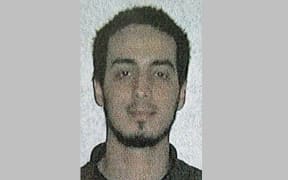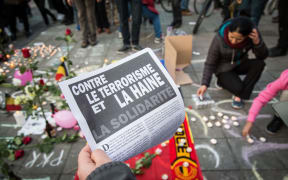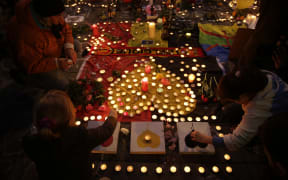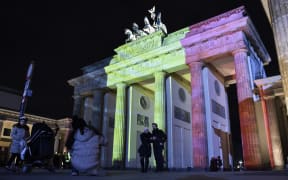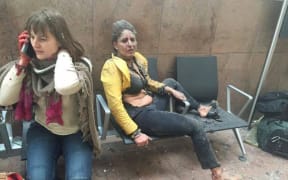ANALYSIS: The Belgian government warned at the weekend that there might be an attack after the security services captured their most wanted man. It came swiftly.
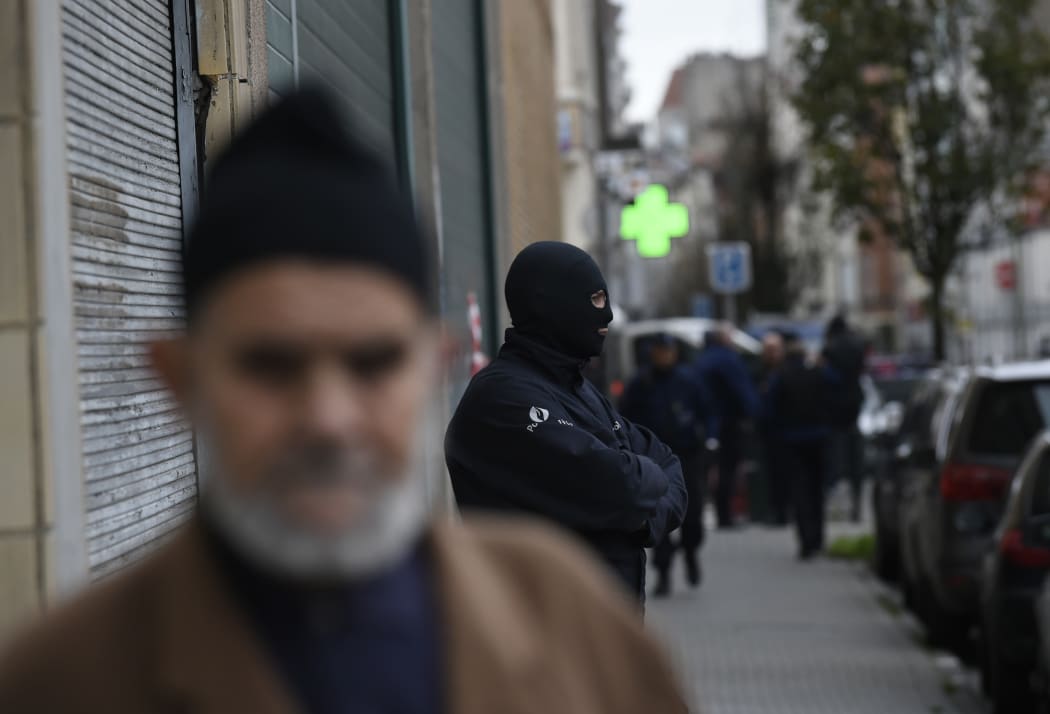
Armed policemen near the scene in Molenbeek-Saint-Jean, Brussels, where Salah Abdeslam was apparently wounded and taken into custody. Photo: AFP/FILE
Tuesday's explosions, which killed over 30 people at the main Brussels airport and an underground rail station, came just days after Belgium's security services caught the last surviving suspect in November's attacks on Paris.
Belgium, which is home to 11 million people, has announced $US450 million of extra spending to upgrade its security capabilities since it emerged it served as the base for the Paris attackers, who killed 130 people.
But Tuesday's bombings at home show how much further it still has to go.
Security experts say squabbling layers of government, under-funded spy services, an openness to fundamentalist preachers and a thriving black market in weapons all make Belgium among the most vulnerable countries in Europe to militant attacks.
One US government official told Reuters that Tuesday's attacks showed Belgian authorities still "have not upped their game".
Catching Paris attack suspect Salah Abdeslam on Friday was a coup for Belgium's security services. But his four months apparently hiding and moving about the capital were also proof of how difficult the task of securing Belgium is likely to be.
It is still too early to say whether Tuesday's attacks were directly linked to Abdeslam's capture.
US officials believe they may have been already in the works before his arrest. The attacks were not highly sophisticated or the type that required a huge amount of ingenuity.
Nevertheless, Prime Minister Charles Michel, who locked down the capital for days in November after the Paris attacks, warned on Sunday of "a real threat".
US government sources said that, while the United States and Belgium had believed that another attack after Paris was highly likely, they did not have hard intelligence about where or when such an attack would occur.
Intelligence issues
Catching up after years of neglect was always going to be a problem for Belgium's intelligence agency, which has just 600 staff.
That's only a third as many as in the neighbouring Netherlands, a country not much larger and with fewer home-grown jihadists fighting in Syria or Iraq.
Belgium has supplied the highest per capita number of fighters to Syria of any European nation, and the crowded Brussels borough of Molenbeek has been described as a "jihadist air base" because of the number of militant suspects believed to be living there.
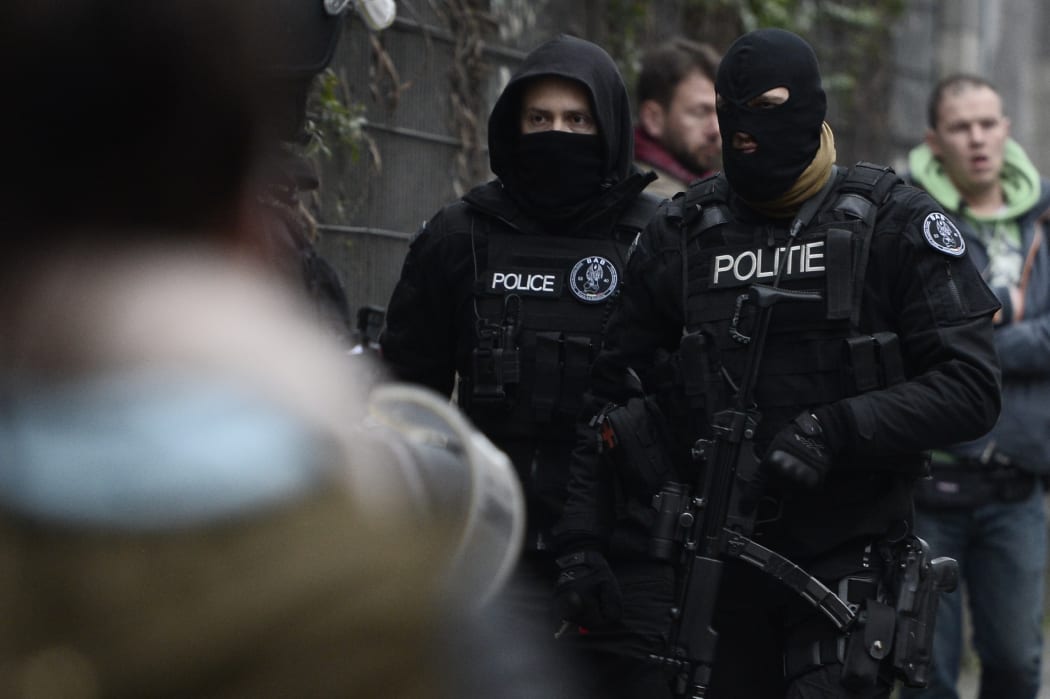
Photo: AFP
To follow a single suspect around 24 hours a day without being detected, security agencies need crews of as many as 36 officers, US and European officials estimate.
This means even well-staffed agencies such as Britain's MI5 can only closely follow a limited number of suspects at any particular time.
According to Alain Winants, the head of the Belgian intelligence service from 2006 until 2014, Belgium was one of the last places in Europe to obtain modern techniques to gather information, such as telephone taps.
On one occasion, police had to deny they let Abdeslam slip due to a law banning house raids at night.
Mr Michel has already said he accepts more is needed.
It is impossible for any country to completely secure "soft targets" such as busy railway stations and airports, but Belgium also has unique challenges.
The patchwork country divided between French and Dutch speakers has a bureaucracy that hinders the sharing of information, with six parliaments for its regions and linguistic communities, 193 local police forces and, in Brussels, 19 autonomous mayors.
That allows militants to hide below the radar in a way they cannot in the much more centralised Netherlands.
It also slows the passing of new laws to rein in the preaching of hate in mosques and roaring trade in illegal weapons.
Nearly 6000 firearms are seized every year in Belgium, more than in all of France, police data shows - and they are often sold by Balkan crime networks to home-grown Belgian jihadists.
Inside Molenbeek
Belgian authorities have been accused of neglecting Muslims and failing to help find jobs to shield them from people seeking to radicalise desperate young men.
Youth unemployment can reach up to 40 percent in some parts of wealthy Belgium.
Just a few miles from the power of the headquarters of NATO and the European Union, but effectively a world away, Molenbeek on the poorer side of the city's industrial-era canal has become a notoriously difficult place to track militants.
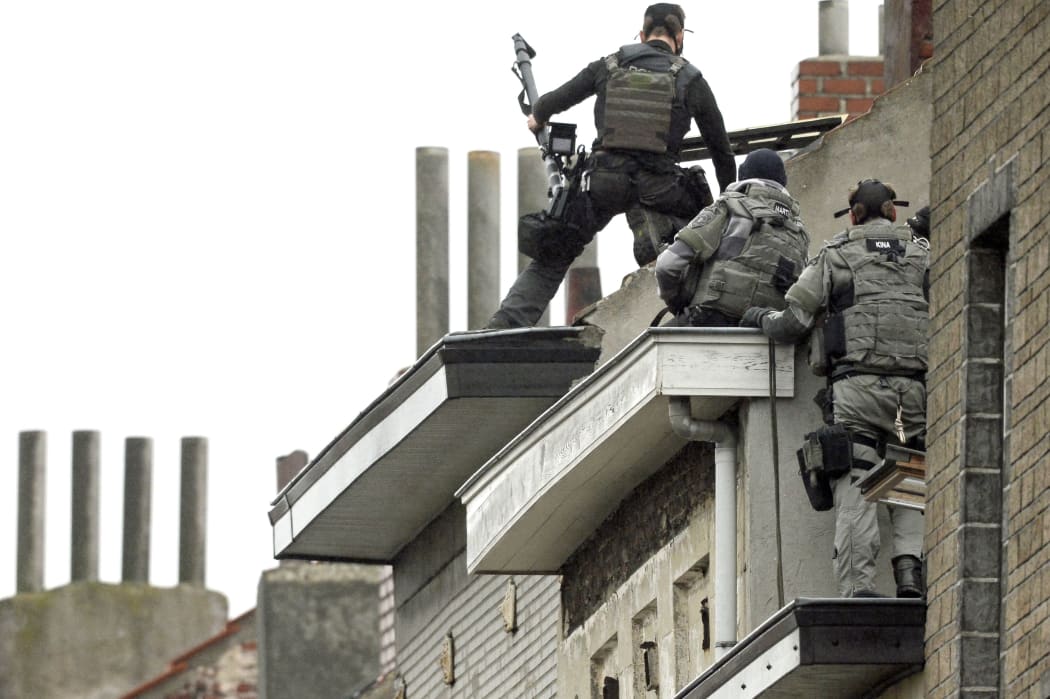
Salah Abdeslam avoided capture for four months hiding and moving about Brussels. Photo: AFP/FILE
David A Graham, now staff writer for The Atlantic, formerly of Newsweek and The Wall Street Journal, looked inside the neighbourhood of Molenbeek. Although neighbourhood implies it is small, in fact its population is close to 100,000.
Mr Graham identified the dual input of large numbers of immigrants who were poor and isolated from the dominant culture on the one side and far-right, anti-immigration parties loudly declaring a Muslim menace on the other side.
This, he told Checkpoint with John Campbell, created alienation and vilification, and a breeding ground for radicalisation.
Molenbeek was facing renewed scrutiny, given the links it had to many of the individuals behind the attacks in Paris and Brussels.
"There seems to be some level of inevitability about terrorism in Belgium; you have all the right ingredients, both this alienated community of fairly low-income, high-unemployment in Muslim communities, and low assimilation and these parties that oppose them.
"You also have a weak state that's really over-taxed on its terrorist abilities - and so a combination of all those things makes some level of terrorism probably inevitable."
Molenbeek is home to many Belgian Islamists and it has something of a history of radical Muslim leaders recruiting disaffected youth.
"Belgian Islamists come from a background of petty crime, they like to drink, they like to smoke marijuana.
"It's not people who came up through a devout family. At some point in their adolescence, they radicalised and became very devout Muslims and very devout jihadists so you see the way lack of economic opportunity and alienation can drive them in this direction."
Abdeslam was able to vanish into the streets of Molenbeek, some quarters of which are 80 percent Muslim, for four months, protected by family, friends and petty criminals, not far from his parents' home.
Short-term versus long-term
Some of these problems go back to the 1970s, when Belgium, still heavily industrial at the time, sought favour and cheap oil from Saudi Arabia by providing mosques for Gulf-trained preachers.
European officials have acknowledged that no amount of quick funding increases for Belgium's intelligence services will immediately solve the various challenges.
Mr Graham said a crack-down in the area in the short-term was inevitable.
"The question is what sort of short-term effect that has in terms of guaranteeing security - versus what sort of long-term plans the Belgian government can lay to try to fight the root causes as well as the violence itself."
- Reuters/RNZ
